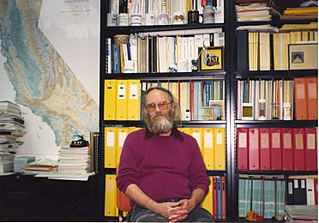A Quote by David Lynch
Everyone is on the internet but they're not all talking with each other. There are groups upon groups out there, but they don't talk to one another. So while the internet brings everyone into a shared space, it does not necessarily bring them together.
Related Quotes
Everyone should be concerned about Internet anarchy in which anybody can pretend to be anybody else, unless something is done to stop it. If hoaxes like this go unchecked, who can believe anything they see on the Internet? What good would the Internet be then? If the people who control Internet web sites do not do anything, is that not an open invitation for government to step in? And does anybody want politicians to control what can go on the Internet?
Bring different groups together internally, send them out to visit other companies, or bring in interesting speeches. Show that you love learning by having people on staff whose job it is to explore without any near-term metrics. Publicly shut a project down and talk about what a great job a team did because they learned so much. And so on.
One of my favorite literary theorists, Mikhail Bakhtin, wrote that the defining characteristic of the novel is its unprecedented level of "heteroglossia" - the way it brings together so many different registers of language. He doesn't mean national languages, but rather the sublanguages we all navigate between every day: high language, low language, everything. I think there's something really powerful about the idea of the novel as a space that can bring all these languages together - not just aggregate them, like the Internet is so good at doing, but bring them into a dialogue.
If you look back at history or you look at any place in the world where religious groups or ethnic groups or racial groups or political groups are killing each other, or families have been feuding for years and years, you can see - because you're not particularly invested in that particular argument - that there will never be peace until somebody softens what is rigid in their heart.
[On the Internet and activism:] The danger of the Internet is cocooning with the like-minded online - of sending an email or twitter and confusing that with action - while the real corporate and military and government centers of power go right on. In a way, the highest purpose of the Internet is to bring us together for empathy and action. After all, the reflector cells and empathy-producing chemicals in our brains only work when we're physically together with all five senses. You can't raise a baby online.
The anonymity issue is a big question. As long as people can disguise cyber attacks and as long as there is a sort of question mark over who is responsible, then the problem will continue to exist. And of course what happens in response to that is that there is a move to try and refashion the Internet so that anonymity is impossible, which of course leads to fears among all sorts of groups - civil rights groups, NGOs, and political parties - that the Internet is going to be used simply as a method of control. So these are very sensitive issues.
I was an athlete, so I hung out with the jocks. I was smart, so I hung out with the nerdy kids. I was also into theater, so I hung out with the misfits... So I was always in different groups, and those groups never quite overlapped. The racial part of it was just another one of those groups, in one sense.
When I was 8 or 9, I started using bulletin board systems, which was the precursor to the Internet, where you'd dial into... a shared system and shared computers. I've had an email address since the late '80s, when I was 8 or 9 years old, and then I got on the Internet in '93 when it was first starting out.







































